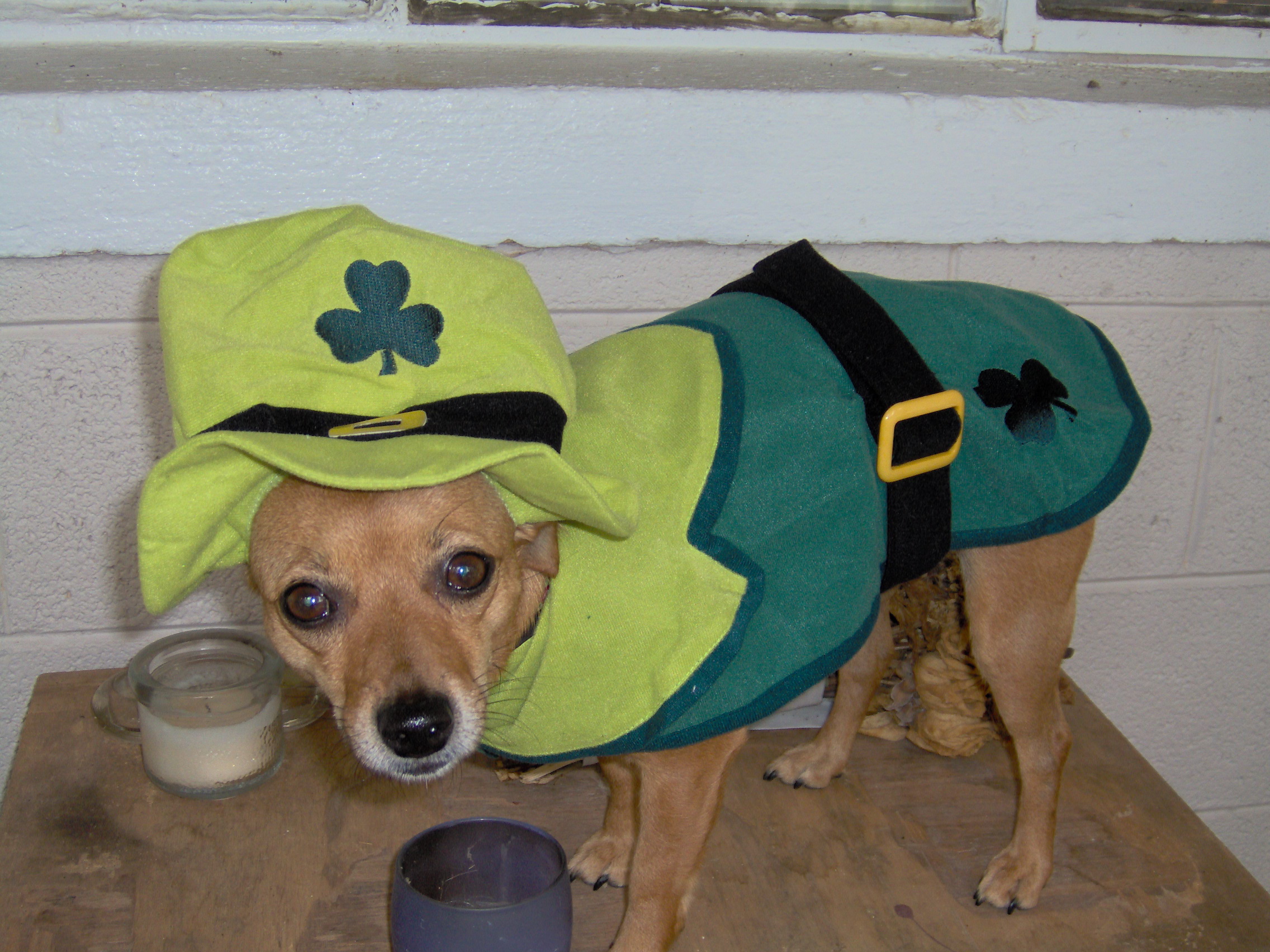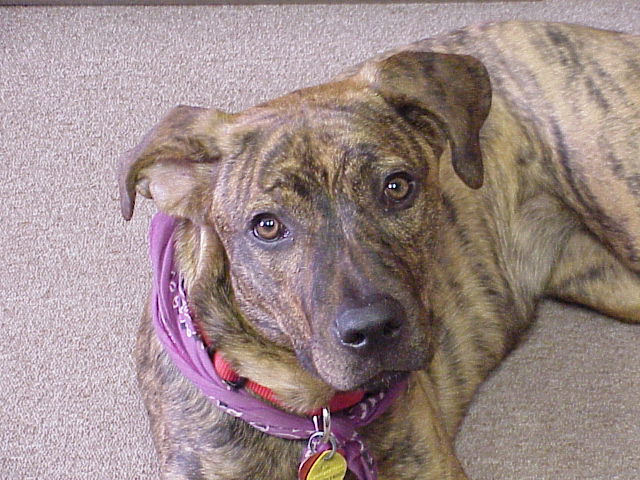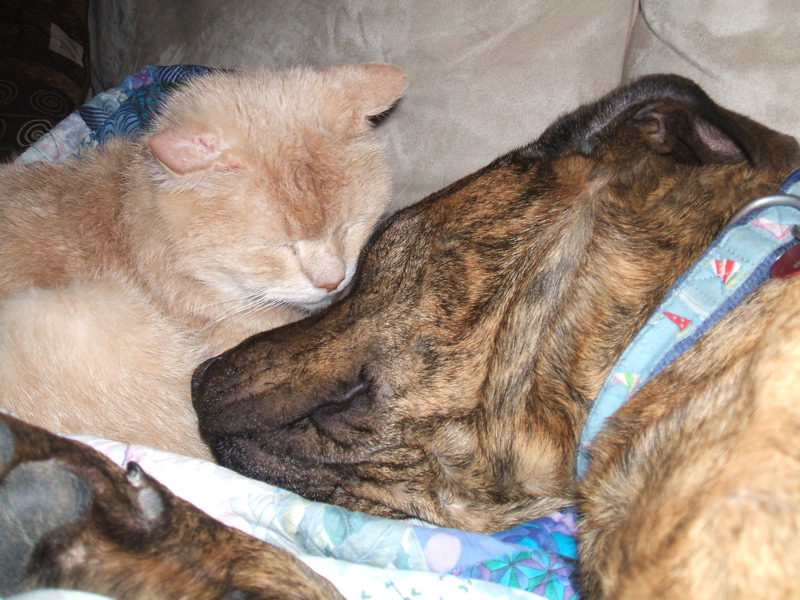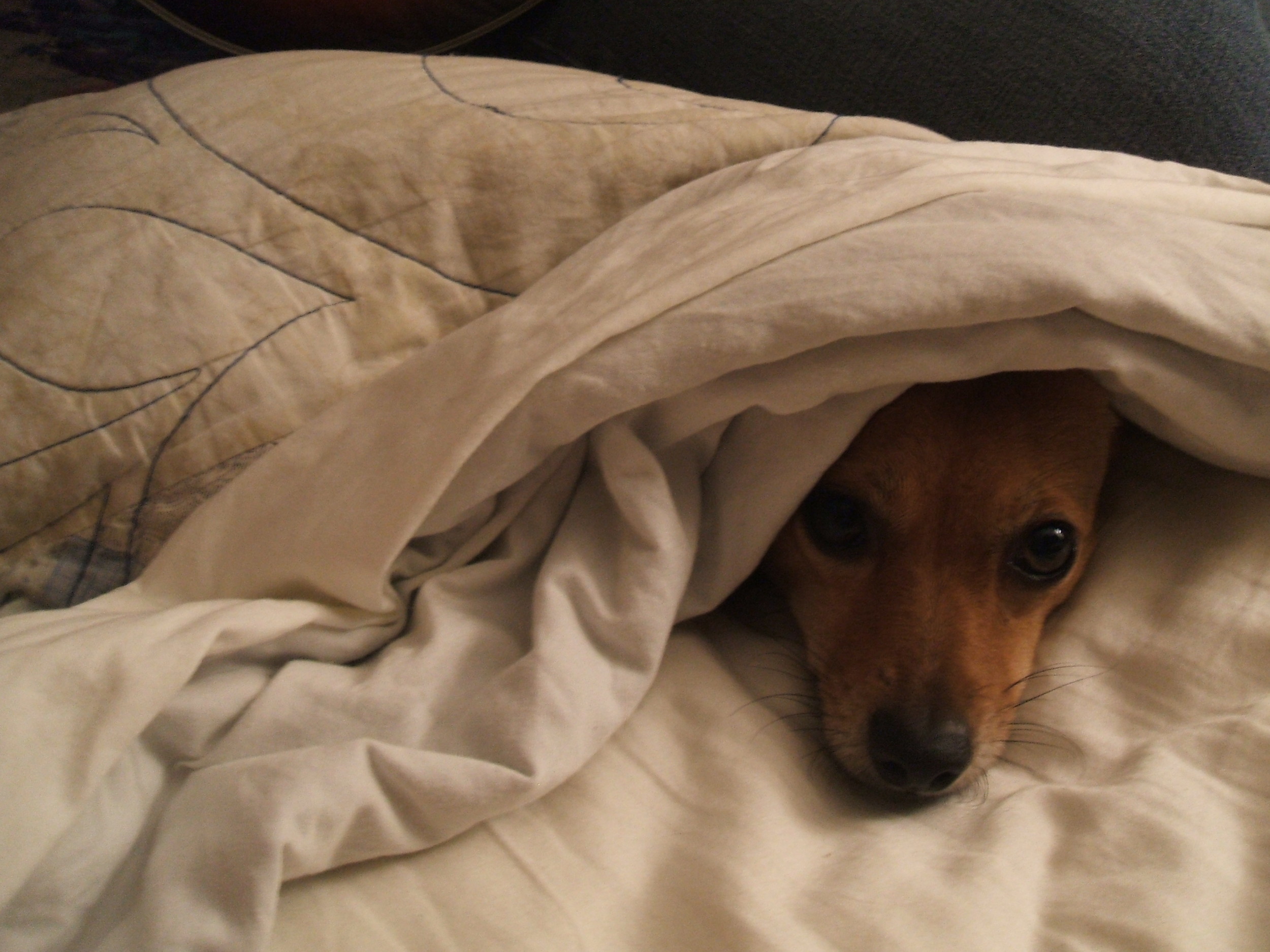On losing our dogs
I got my dogs by accident, really. Mina, then named Brandy, was a one-year-old mini-tyrant who been dropped off at the animal shelter in Chapel Hill, North Carolina by a homeless family who was unable to keep her. I agreed to take her home for just a night, as she seemed mean and I didn't think I could survive much longer than that.
Cecilia was a stray brought to that same shelter some time later with her brother, both skittish and sweet, and hard to see, dark and stripey behind the kennel doors. I figured she didn't have a chance among all those other puppies waiting for adoption and agreed to take her home until the right family came along.
And that's how my adult life with dogs began. They weren't carefully sought or wished-for canine companions. Each simply needed a place to stay for a night or two. I was in my twenties and just responsible enough to give them food and water and walks. But their temporary status didn't stick, and we ended up spending their lifetimes together.
Since they died, Cecilia at the end of April and Mina just this week, I've been overcome by sadness at the loss, and somewhat surprised by it, too. Everyone I'd known who'd lost a pet had been floored by the experience, and I always thought, "They must have really, really loved that animal." And yes, that's a big part of it. But what I've realized about this kind of loss, and something that hit me particularly hard after losing both my dogs so close together, is that the impact feels enormous because these animals are ever-present in so many aspects of our daily rituals, often for many years of our lives.
When I came downstairs to make coffee the morning after Ceece had died, the quiet hurt my heart. No thumping tail on the wooden floorboards. Gone. Over the past few days, when scrambling to get the kids out the door, I've felt the customary panic about where to put Mina while we're gone so that she doesn't pee on the carpet, or eat something out of the trash can, or bury a bread crust in the aloe plant in anticipation of the end of days. Then I remember: I don't have to put Mina anywhere.
The consolation is that missing them feels like an easy kind of grief, something I don't think we get to experience that often, and not always what occurs after a human death. Both girls had lived long, good lives; Mina was about 15-years-old, and Ceece was 13. Both had heart disease, and we knew their time was limited. Cecilia had received her diagnosis just a few months ago, the vet telling us that she wouldn't live much longer. Although symptomatic, she did well in the following weeks, and died suddenly in the car one morning, the very best outcome you could ask for.
Mina, on the other hand, had been treated for congestive heart failure and other issues for two years. resulting in a host of side-effects that, well, you may have heard us complain about from time to time. Our days since then had been accented by her distinctive, and sometimes infuriating cough, a result of her illness and, it should be mentioned, something that never seemed to bother her or dull her insatiable appetite for mischief. We kept an eye on her, but I truly never had to think about making a difficult choice until the other morning, when I came downstairs to find her breathing erratically. She refused food, and seemed to have no fight left, two things that, for her, were a big deal. Her situation went downhill fast and when we got to the emergency clinic, the kind staff there assured me that something "major" had happened, that this outcome was not unexpected with her history and, without pressuring me at all, made it clear that it was ok to let her go; that it wouldn't get better. The veterinarian put Mina to sleep while I held her in my lap, and allowed me to sit there crying as long as I needed.
In the weeks since Ceece died, and the days since Mina did, I've continued to do so. I feel the tears well up when I enter the living room and find it strangely empty. When I'm doing the dishes and missing my big, goofy companion, who used to try and squeeze into the impossibly small space between the open dishwasher and the counter to lick the plates. This prompted J to do all the dishes one night shortly after we lost Cecilia, before I could get to them, explaining, "I didn't want you to be sad."
But like I said, an easy kind of grief. Not that the feeling isn't strong, but that it's unencumbered by complications, regrets or other tricky emotions. I'm just down. I just miss them. And even considering how much our relationship to the dogs changed once we had kids - they got older, we got much busier, our doting on them became much more infrequent and the fact that they made our life more challenging was undeniable - I don't feel guilty about any part of my relationship with them.
Once, back when we were all much younger, there were long walks and dog parks, my tough decisions were about what kind of dog food to buy and not what kind of diapers. We all grew out of that indulgent lifestyle, although the girls never stopped approaching each day as though me and J were the most awesome people that ever walked the earth, even when we complained about all our responsibilities and could barely get their food in their bowls at the end of tiring evenings.
Because the dogs died just a month apart from each other - in what could be viewed as a crazy coincidence or a Romantic illustration or their devotion to one another - the experience also serves as this tragi-comedic end to a specific era of my life ("Wait, your other dog died, too?" I've been asked, providing a much-needed laugh about the unexpected twist).
I adopted Mina and Ceece in my young twenties, when I was dating my someday-husband, and living with roommates who were close friends. Mina's presence is undeniably linked to the youthful antics I shared with those girls. She'd steal the crust of the late-night pizza we ordered and "bury" it in our shoes. And Ceece's puppyhood extended through me and J's first house rentals, as we navigated our strenghthening relationship and decisions about "what was next." I'll always remember the off-leash walks we took with her on gorgeous North Carolina trails when I think about our time in Chapel Hill.
Dogs are so easily interwoven into the day-to-day mundanities of our lives. I think that's why losing them is so difficult. On the brighter side, that's also why the prospect of a new dog when we're ready is so wonderful.
I miss them. I miss it all. Even Mina's incessant cough. I miss Ceece's hot breath on us while we tried and failed to have a moment of quiet coffee-drinking in the morning. I miss the excessively-loud lapping of water. I miss their soft ears and I miss the children shooing them away from the dining room table. I miss their hilarious relationship to one another: our big, galumphing sweetheart and our tiny, manipulative dictator.
A couple of months ago I was talking to Nora about our dogs, and what a funny pair they were. "They're sisters," I said to her. "But not really." With the sort of logic only children are capable of, she said, excitedly, "You picked them for sisters."
"That's right," I told her. "I did in a way." Unlikely sisters, who completed the picture. First just me and them, then a husband and wife, then rollicking daily adventures with a family of five.
A family of five plus two, that is,. A house that was enveloped in near constant insanity, and feels much quieter today.
Great stories, though. I've got 'em. My children, I predict, will roll their eyes as I tell them over and over as they grow up. But they'll inevitbly become part of our family's history, looming large in the tales we tell about our little house in New Haven.
Even in the most harried of moments our dogs loved us, because that's what dogs do. In our years together, they taught us about that unwavering brand of love, about integrity and devotion, and, finally, about saying goodbye.
I'll carry those lessons with me. And the memories, too. Memories of our two hilarious and affectionate companions, optimistic at the outset of every adventure, impressed by our most minor successes, and always by our sides.







